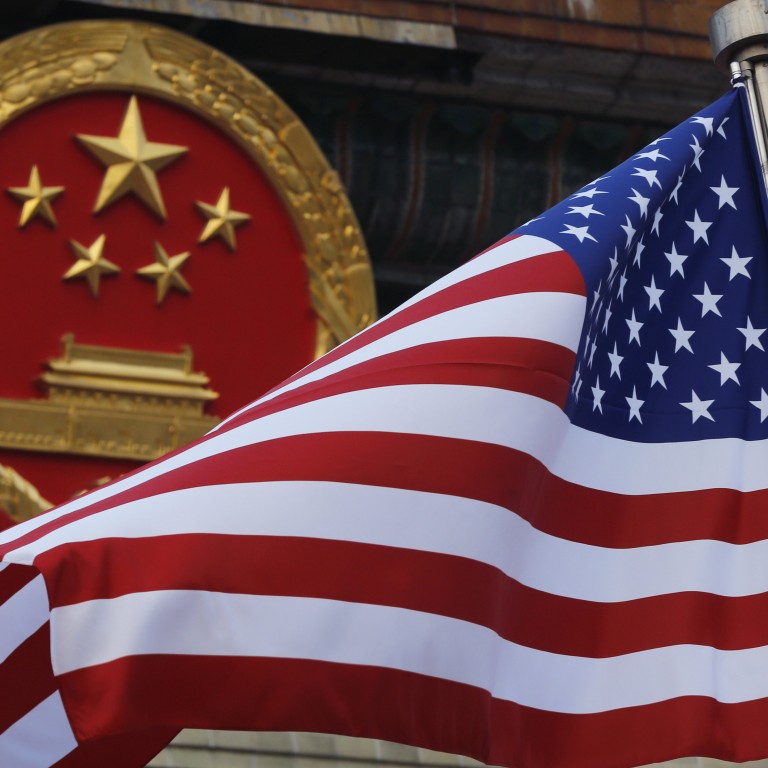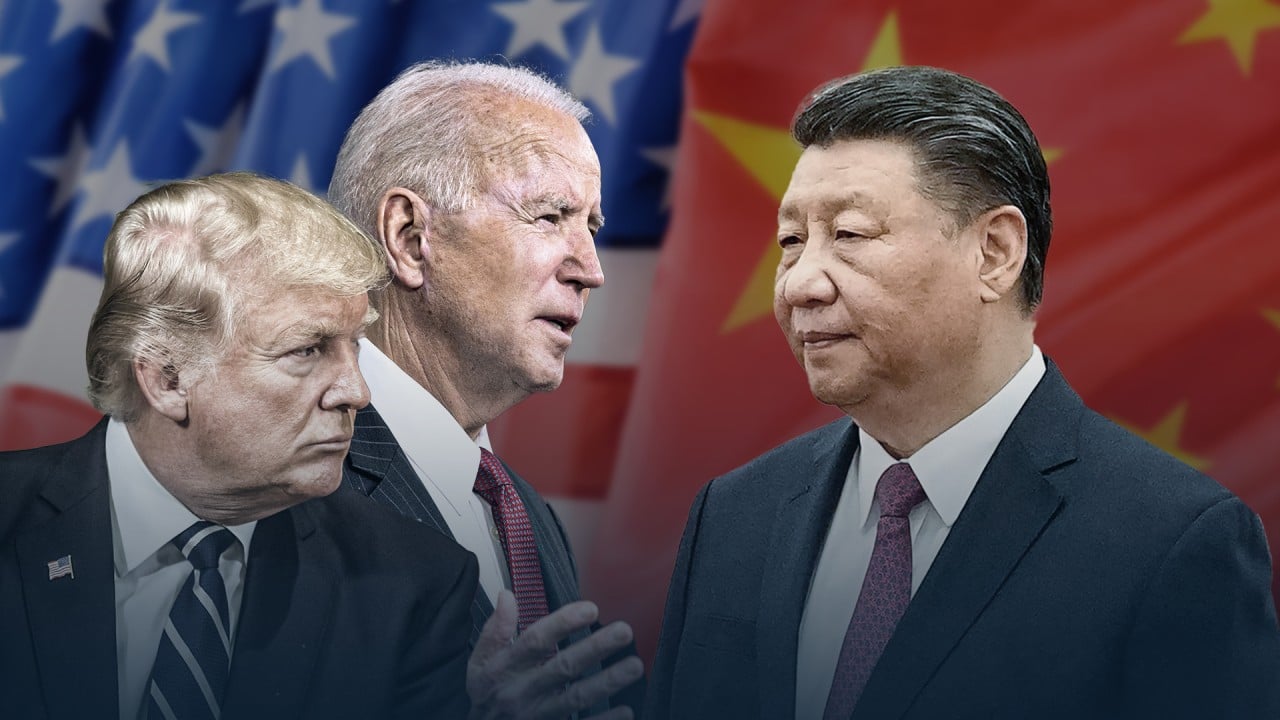
From ‘decouple’ to ‘de-risk’ – is there any difference in the US’ China strategy?
- Washington’s labelling of its policy on Beijing seems to looking more like the EU’s
- But there are differences between the two and US goal remains unchanged, observers say
But observers say that irrespective of what term is used, Washington will not be able to paper over the cracks in its relationship with Beijing and divides remain between the European Union and the US over China.
The idea of decoupling with China has been floating around since former US president Donald Trump initiated a trade war with Beijing in 2018 and threatened to separate the two economies by imposing tariffs on a large number of Chinese goods.
Most of these tariffs remain in place, with the battle gradually moving to the technology front. From Trump’s 2019 ban on Huawei equipment, President Joe Biden’s administration has now moved to target semiconductor exports to China, a key element in Beijing’s military development.
The White House has said repeatedly the US does not want to completely cut trade with China.
In April, US national security adviser Jake Sullivan emphasised “de-risking”, saying the export controls against China were based on national security concerns to ensure “US and allied technology is not used against us”.
Bates Gill, executive director of the Asia Society Policy Institute’s Centre for China Analysis, said the change in tack signalled a more practical approach in the US administration.
“It is a sign of a more reasoned and realistic approach on the part of the United States in part recognition that ‘decoupling’ is not practical and in simply a more accurate term of what the United States and its allies wish to achieve,” Bates said.
“It is also a smarter term than ‘decoupling’. After all, who does not want to reduce risk?”
But Beijing seems unconvinced.
Responding to US Secretary of State Antony Blinken’s focus on de-risking at a US-EU trade meeting in Sweden last week, China’s Ministry of Foreign Affairs said the real risk was a “new cold war”.
“The true risks faced by the world are such practice as stoking bloc confrontation and brewing a new cold war,” ministry spokeswoman Mao Ning said.
Without naming the US, she said these dangers had led to regional turmoil, politicisation of trade and sci-tech issues and destabilisation of the global industrial and supply chains.
State news agency Xinhua also ran a commentary accusing the US of being “deceptive” and “putting old wines into new bottles”, saying the purpose of the strategy was still to “coerce others” to contain China.
Biden hits out at China’s ‘economic coercion’ but says thaw may be soon
The US State Department defines de-risking as an act by financial institutions to “terminate or restrict” business relationships with clients or categories of clients to “avoid rather than manage” risk.
However, observers said its meaning in practice was ambiguous and the extent of US measures could vary depending on whether it wanted to “avoid” or “manage” such risks.
Zha Daojiong, a political economy professor at Peking University, said whether the US expression was “derisk” or “decouple”, it was meant to be “more China specific than anything else”, which would lead to concerns from China.
“What remains to be seen is specific policy changes to come. Whether or not a party overshoots and ends up hurting itself more,” Zha said.
Australian PM Anthony Albanese backs G7 on ‘de-risking’ trade with China
For now, the US is working on new outbound investment restrictions against China that could include more advanced chips, AI, and quantum computing, and it is pressing its allies to do the same.
But it failed to reach an agreement with the EU at the trade meeting in Sweden last week, according to Bloomberg.
The EU has become more aligned with the US’ China policy in recent years and has ramped up measures to address economic concerns over China. It has tightened foreign investment screenings, with more measures planned to target China’s “economic coercion” and technology transfers.
But the 27 member states remain split over how far they would like to go with the US. While the Netherlands is set to follow suit to impose chip export controls on China, countries like France have demanded Europe pursue more strategic autonomy and not become a “vassal” in the US-China rivalry.
Gill said the US saw more risks in relations with China than many of its European counterparts but pressing its allies to take a harder stance on China could result in some “transatlantic friction”.
And Beijing “will do its best to exploit those differences across the Atlantic”, he said.
In what many see as an effort to drive a wedge between Washington and Brussels, Beijing has been ramping up its diplomatic offensive with the EU states.
During his trip to Europe last month, Chinese Foreign Minister Qin Gang said the EU should think about “what and where are the risks” when talking about “de-risking”. In an apparent reference to the US, he said decoupling moves by “some countries”, would lead to risks of “a new cold war” that would sacrifice Europe’s interests.
US seeks to ‘de-risk’ relationship with China, national security adviser says
Ding Yifan, a world economy specialist at the Beijing-based Taihe Institute, said the EU’s “de-risking” approach towards China was more a “defensive” one than Washington’s “offensive” one.
He said besides the existing technological blockade against China through trade restrictions, the US would strengthen its resilience in areas such as new energy, where it is hard to cut its reliance on China.
“The strategic goal [of the US] remains unchanged. There have been mainly tactical and rhetoric changes,” he said.
“The Chinese government sees this very clearly, so there won’t be any illusions about it. We must stick to our own development direction, which is technology self-reliance.”

 - Kawala Xie.jpg?itok=NogZcyZ-&v=1661304068)
